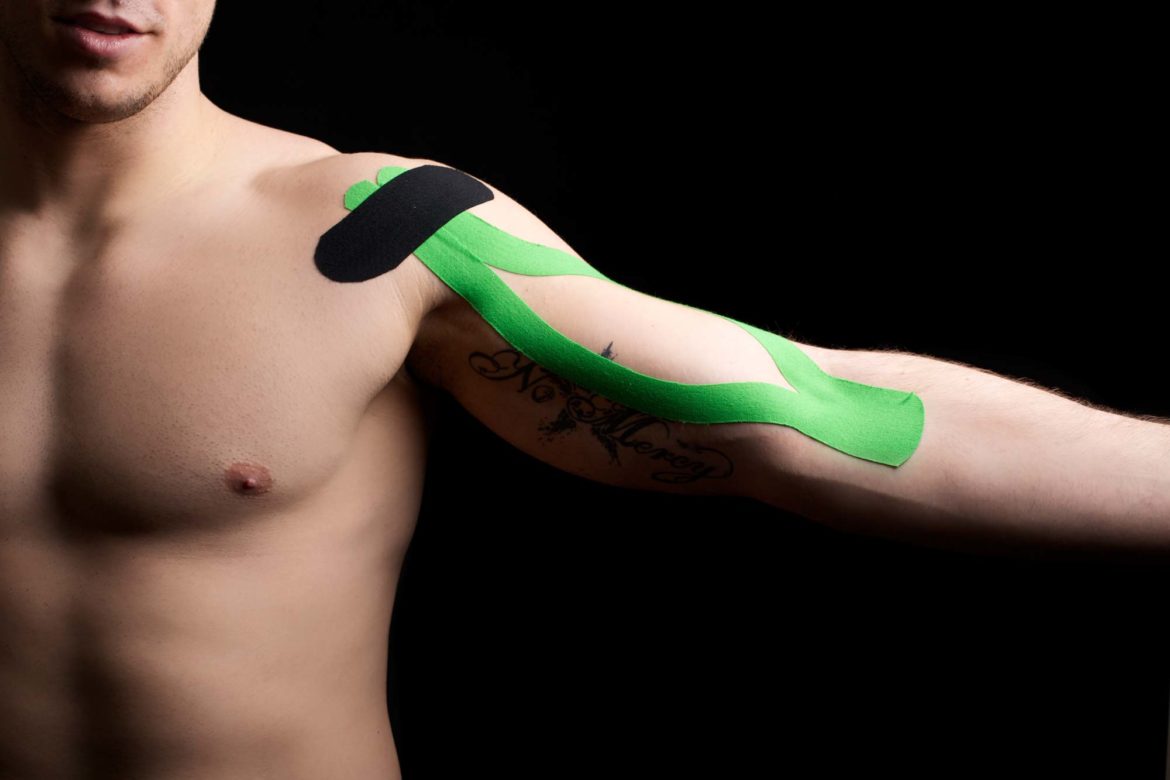Kinesio-Tape or K-Tape for short has become one of the fastest growing products on the rehab market. Whether you are a weekend warrior or a frequent flyer at your local gym, you likely have seen someone sporting the tape. If not, you may have seen athletes on TV with colourful strips running up and down their arms and legs. Nowadays it seems to be synonymous with volleyball, swimming, and track & field.
K-Tape has been around for many years but did not gain popularity until recently. The concept was developed by a man named Dr. Kenzo Kase in the 1970’s. It debuted a decade later with the Japanese volleyball team at the 1988 Seoul Olympics, where Mr. Ben Johnson became infamous. It didn’t, however, gain traction until many years later.
“Kinesio-Tape or K-Tape for short has become one of the fastest growing products on the rehab market. “
K-Tape became popular when the product was donated to athletes at the 2008 and 2012 Summer Olympics in Beijing and London, respectively. Since those two world events, where our country’s best athletes donned the fashionable tape, it has become a regular staple on the rehab market.
What does K-tape do?
“Kinesio-Taping gives support and stability to your joints and muscles without affecting circulation and range of motion.” (from Kinesio Taping in Canada) Because it is non-restrictive, k-tape allows for full range of motion when returning to sport allowing athletes to get back on the field sooner.
K-Tape is also used for preventive maintenance, edema (swelling) following an acute injury, and to treat pain.
Who should apply it?
The application of K-Tape, like athletic tape, depends entirely on the intended purpose of the tape job. Some conditions require the tape to be applied with a full stretch while others may only require a 25% stretch. The tape usually follows the path of the muscles beneath the skin and therefore, a comprehensive knowledge of human anatomy is essential. The application of K-Tape, therefore, should be administered by a trained professional to achieve its desired outcome.
But is K-tape right for me?
There are many uses for K-Tape and chances are it would work for you. K-Tape is used for various conditions including repetitive strain injuries (RSI) such as tennis elbow, plantar fasciitis, shin splints, Achilles tendinopathy; acute injuries such as a low back sprains/strains (including herniations), ankle sprains, knee conditions including patellar tracking injuries, muscle strains (hamstring, quads, low back & neck, etc.), shoulder conditions; and even pre- or post-surgical edema.
If you have suffered an acute injury or have a chronic ailment like an RSI and want to get back to what you like to do, perhaps it is time you come into gesund for an assessment. What I as a physiotherapist can offer is a comprehensive examination of your injury and depending on the nature of the ailment and its cause, K-Tape can give you the protection and confidence to get back to your activities sooner.
Don’t hesitate. Book your appointment today. Physiotherapy treatments are covered by most Extended Health Benefits and we offer direct billing to 14 major insurance companies.
See you soon.


